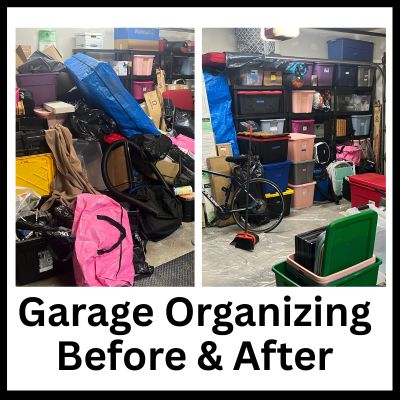Aspirational Grocery Shopping

Did you know, people who are aspiring to eat healthier tend to throw out more food? My #1 productivity tip is to eat right for your body type. For some people this may mean eating more Paleo. Others may do better on a vegan diet. Many people will fall somewhere in the middle. Knowing what’s right for you may involve lots of experimentation so that you can really hear what your body has to say. If you’ve eaten primarily junk food your whole life, integrating one vegetable into your day may be what’s best for you.
Picture yourself at the Ballard Farmer’s Market on a beautiful Sunday morning. Doesn’t that zucchini look delicious? You’re wanting to eat healthier, so you decide to buy a few. Then you see the gorgeous kale, and you buy some of that too. Oh! Cherries are in season, so you get some of those. And you can’t turn down the delicious ripe Yakima peaches! Soon you have two full bags full of yummy produce. You feel good because you’re supporting local farmers, your social tank is filled up because you got to see some of your friends at the market, and you’re feeling optimistic about the fact that you’ve finally decided to start eating more vegetables and less take-out food or microwaved meals. But when you get home, you remember that you had already purchased a bunch of produce at the grocery store a few days prior. Your fridge is full! You’re tired, so you put all the new vegetables in front of the older ones, promising to rearrange it later.
Fast forward to the end of the week and ½ of all those once beautiful vegetables are now wilting in the back of your fridge. You get up the guts to excavate what’s happened, and your trash can is now full of wasted food. Does this sound like you? Trust me, it happens to the best of us! Many families in the US could save $1800-$2000 on wasted food per year. It starts with a different mindset about food.
One of my roles of being a Professional Organizer is not only to help my clients organize their “stuff”, but also their time and energy. In the kitchen, I often help people organize their pots and pans, dishes, cooking gadgets/utensils etc, but I also help with food storage. Pantries, fridges, and freezers are all within my domain. Since I also have several health coaching certifications (through the Institute of Integrative Nutrition and Health Coach Institute), I LOVE talking to my clients about the food they are eating and the relationship it has with their ability to be productive and get organized. I recently attended a NAPO presentation by Marilyn Paul, which inspired this post. She is a coach and speaker on the topics of productivity, renewal and sustainability. She has ADD and Chronic Disorganization, and has lived a very frantic, disorganized life until she discovered a path to change that change her life and the lives of her clients. She is the author of “It’s Hard to Make a Difference When You Can’t Find Your Keys” The Seven Step Path to Becoming Truly Organized (Penguin Books). It has sold almost 200,000 copies! She’s also an author of “An Oasis in Time: How a Day of Rest Can Save Your Life” (Rodale). In her talk, she spoke about how she was able to weave more mindfulness practices into her day through the umbrella of meals. She also talked about the heavy impact that wasted food has on our environment.
Food For Productivity
Nutrient wise, when you eat right, your body can function properly. If you eat in a way where your body can’t assimilate the nutrients, you will constantly feel depleted. You will feel like you’re running on empty. You will not have the energy you need to think. Your emotions will be out of control. You will not have the physical energy to do what you need to do (move boxes, bend over, run errands, etc…). It’s very simple, yet often overlooked, mainly because so many people use food as an emotional coping mechanism that they don’t want to address these issues. Chronic inflammation can show up many different ways. It’s not always achy joints or feeling puffy. If you have a lot of noise in your mind (rumination), I can guarantee that you are experiencing inflammation in your body. Check in with a local Functional Medicine Doctor or naturopath who can help you get to the bottom of what’s causing your inflammation.
When you take the time to plan out your meals (or at least set up the conditions so that you’ll have what you need), take time to prepare them, take time to eat, and take time to clean up, you will naturally be building in more mindfulness practices into your day. This will help your brain and body slow down so that you can rest, refuel, and properly digest your food. Did you know that only 50% of eating healthy is actually about the food? The other 50% is how well your body digests food. When you can slow down enough around meals (prep, eating, and cleanup), you are strengthening your ability to connect with yourself so that you can hear the intuitive nudges that you’re receiving (such as “yes, take on that new project”, or “No, I’ll have to take a raincheck, but thank you for thinking of me!”).
Environmentally, wasting food has a HUGE impact on the landfill. If you haven’t heard, our landfills are all pretty full, so anything you can do to minimize more going into the landfill would be awesome! Food does not properly compost in the landfill. It needs to go into your yard waste container (or get composted yourself) so that it can be turned into soil. What does the environment have to do with productivity? By taking time to preserve the earth and it’s resources now, we act as a steward for the earth. We’re inspiring others to live more simply (and more productively). We’re also setting up the conditions so that the earth can be more productive (to draw down carbon emissions) so that we can enjoy living on this beautiful planet for future generations. Think “regenerative agriculture”. Then there’s the methane issue. Methane is 20% more destructive than carbon! I used to think this was just about the methane that was generated by farming cows, but a lot of methane is produced when food goes into the landfill rather than getting properly composted.
In a future post, I’ll talk more about the ways in which you can get more organized around food so that you can be more productive and waste less. I love to help my clients navigate this process! In the meantime, what do you do to help mitigate food waste at your home? I’d love to add your tips to my future post about food. Send me a message, I’d love to hear about it!

Posted By Jean Prominski, Certified Professional Organizer
- Follow me on Instagram @seattlesparkle
- Join my Facebook Group, Declutter and Organize with Seattle Sparkle.
- Ready to book a consultation? Complete this form.
- Download my free 5 week journal The Seattle Sparkle Method to Get Organized and Stay Organized
- Check out my media exposure: Seattle Sparkle in the Media
- For artwork to energize your home, order through jeanprominski.com.




